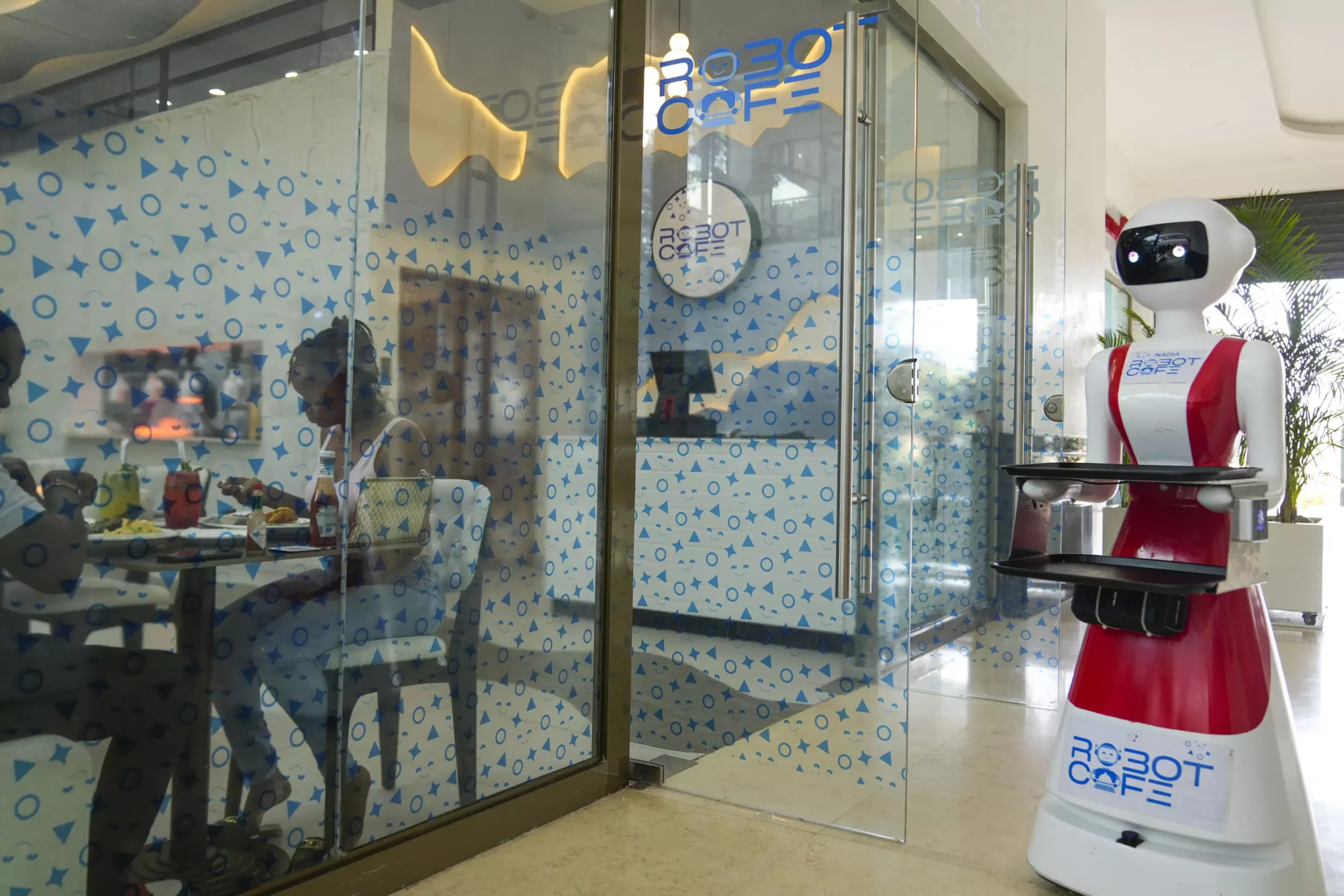In the bustling city of Nairobi, Kenya, a new trend is emerging in the hospitality industry. At the Robot Cafe, customers are greeted by robots carrying plates of food on inbuilt trays, sparking excitement and curiosity among visitors of all ages. This unique dining experience is the first of its kind in Nairobi and East Africa, setting a new standard for innovation in the region’s tech hub.
Nairobi has garnered a reputation as a tech hub, earning the nickname The Silicone Savannah for its vibrant startup scene and innovative advancements. The arrival of the Robot Cafe further solidifies Nairobi’s position as a hub for technological innovation in East Africa. Cafe owner Mohammed Abbas was inspired by his experiences with robot service in Asian and European countries, leading him to invest in these preprogrammed robots for his restaurant.
The three robots at the Robot Cafe, named Claire, R24, and Nadia, are not designed to engage in extensive conversations with customers. Instead, they deliver a simple message like “Your order is ready, Welcome” before diners retrieve their food from the tray. While the robots enhance the dining experience with their unique presence, human waiters remain essential for taking orders and providing personalized service to customers who prefer a more traditional approach.
The introduction of robots in the hospitality industry has raised concerns about the impact on the future workforce, particularly in regions with a young population like Africa. Despite fears of automation replacing human workers, the manager of the Robot Cafe, John Kariuki, emphasizes that robots cannot fully replace the role of human waiters. Kariuki notes that the robots are expensive to acquire and lack the versatility and warmth that human interaction provides in a restaurant setting.
Hospitality industry expert Edith Ojwang highlights the importance of maintaining a balance between robotic and human service in the industry. Ojwang acknowledges that some customers may prefer the efficiency of robotic service, while others value the personal touch and warmth of human interaction. As the industry continues to evolve, there is room for both robotic and human service to coexist, catering to a diverse range of customer preferences.
The Robot Cafe in Nairobi represents a glimpse into the future of hospitality, where technology and tradition intersect to create a unique dining experience. While robots may play a role in enhancing efficiency and engaging customers, human waiters remain an essential component of the service industry, providing personalized care and warmth that cannot be replicated by machines. As Nairobi’s tech hub continues to thrive, the integration of robots in the hospitality sector offers a glimpse of the evolving landscape of service and innovation in the region.


Leave a Reply
You must be logged in to post a comment.